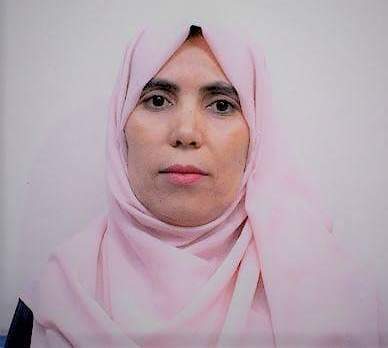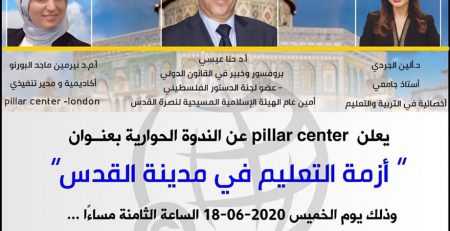The Normative and Human Dimension of the Coronavirus Crisis in International Relations Approaches
Written by researcher Samia Ben Yahia/ Algeria.
Despite this growing interest in human rights as an ethical pillar in international relations, and the adoption of the global normative behaviour thought that the dimensions of sustainable development seek to embody, our globalized world under neoliberalism highlights that everything that happens on the international scene separates ethics and theories of international relations, and undermines the normative system. Rooted in the idealist philosophy that the idealist theory came with the idea of conceiving what the future world would be, or how “the world would be better” in an abstract way was far from the reality of international relations.
The idealist theorists have been sticking to this belief in ancient and modern philosophical thought, where we find Kant, Locke, Hegel, or Bentham whose philosophy has adopted a normative idea of internationalism, and they believe in the ethics of international relations. As for the so-called “analytical” philosophers they see that the ethics of international relations is no longer a priority due to the various distortions of international politics that have given rise to multiple forms of oppression throughout human history, such as sexism, racism, socio-economic exploitation, overexploitation of natural resources, indiscriminate pollution, and the creation of international crises—creative chaos, or dynamics. Non-linearity – the dismantling of states, the emergence of new generations of wars, from traditional wars to fifth-generation wars, and microbial biological wars, all of this shows the extent of anthropological distortion in our world today, as international relations are no longer able to explain a series of facts dictated by the development of the international system. This is what makes us ask a question that deserves a special analysis in this article because of its importance that how do approaches to international relations explain the normative and humanitarian dimension of international crises. for humanity?
The position of ethics in international relations approaches
It is undoubtedly a given in international relations that conflict is a natural phenomenon characterized by complexity, so the analysis of the issue of the morality of international relations becomes more complex in the perception of the most prominent approaches to international relations, because the link between the different moral orientations of realism, liberalism, and constructivism adds a degree of difficulty, the essence of moral reflection Realism is based on ontology, considering that man is a warrior by nature – international relations are conflict relations – and that in the state of nature which Hobbes defines as “the state characterized by the absence of law, and that the concepts of right and wrong, justice and injustice have no place.” The state, selfish interest—interest, power, the end justify the means—yet they do not oppose the idea of a relative moral dimension in international relations, the recognition of human rights and the adoption of the concept of human security, where Hans Morgenthau emphasized the importance of wisdom—one of Aristotle’s fundamental virtues—in contrast. The realistic approach does not recognize the universality of values, and uses human rights as a criterion for implementing the state’s agenda and achieving its interests, which explains the hypothesis of the American conspiracy Which China recently adopted that the Corona virus was a biological war that America used against China to strike its economy, which is relatively the analysis adopted by some countries, and analysts despite the opposite accusation by the United States of America that the Corona virus is fabricated by China for the same reason, which is to strengthen its economy, and it may be Another country outside the framework of the American-Chinese conflict, and the same realistic interpretation of the American position can be adopted in its refusal to lift the economic sanctions imposed on Iran without taking into account the moral human dimension, in addition to the European Union’s handling of the Corona virus crisis highlights the replacement of nationalism by the supranationalism that represented by the European Union, as each country has adopted a unilateral policy to contain the spread of the Corona virus without taking measures and measures that involve a common security tendency under the misleading European Union that may justify many such behaviors, but this undermines the luster of the European integration experience as long as it has been unable to create a unified European administration to confront such behavior these crises.
Thus, although ethics and values are often marketed in speeches, media, reports of organizations, etc., it does not appear that ethics are the essence of international relations in the twenty-first century, which reinforces Stanley Hoffman’s statement about “the incompatibility between ethics and international politics,” or “the structure of international relations.” The international environment that limits the possibilities of moral action.” Therefore, the ethics of international relations assumes that it provides a justification for the global imbalance occurring today between what is theoretical and realistic, and between the universality of human rights, and their violation in more fierce and filthy ways under the weight of biological wars, to achieve the interests of major countries, and to impose their economic hegemony. At the expense of weak peoples and human existence, which, in any case, explains the US-Chinese competition to lead the world and change the international order.












Leave a Reply